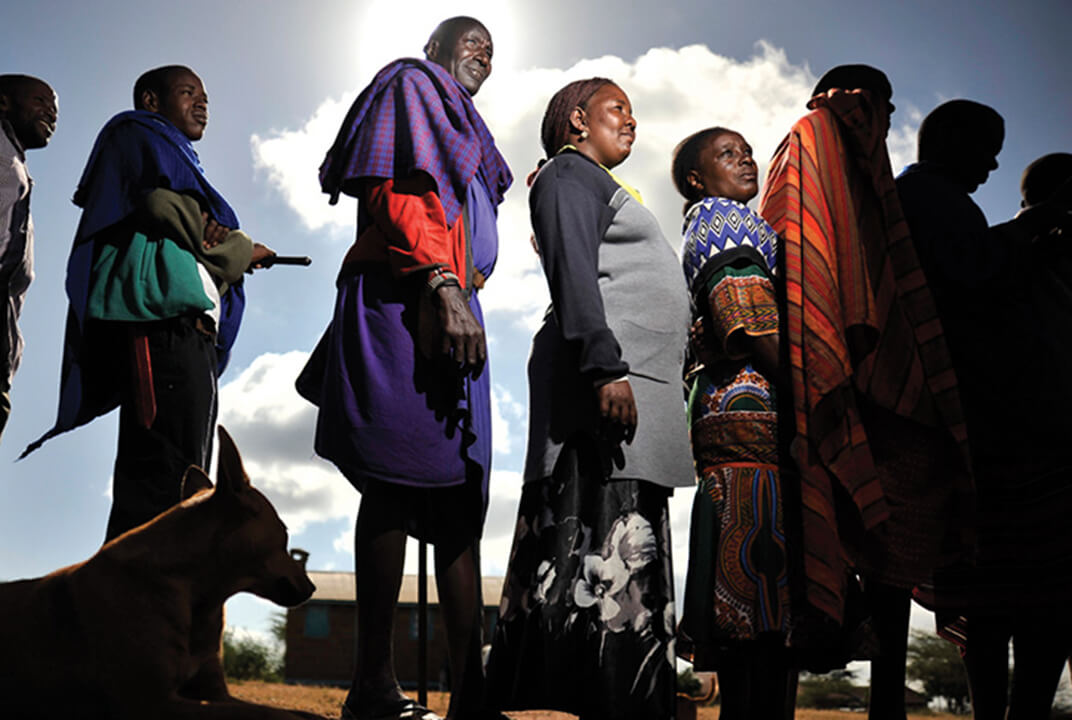Insight | Case study: Smart City Kigali, Rwanda
Case study: Smart City Kigali, Rwanda
Enterprise
Inmarsat lays the foundations for Kigali to become a flagship African smart city
Smart Africa is an organisation that aims to use technology to advance sustainable socio-economic development in Africa and improve access to technology in the continent. The Smart Africa Alliance seeks to drive forward its goals with a variety of partner Organisations (Inmarsat is their first commercial partner). The Transform Africa Summit is an annual event that brings together a variety of African Heads of State & Government, African city Mayors, ICT industry leaders, SMEs and NGOs to discuss how to advance the aims of Smart Africa.
The challenge
Like much of Africa, Rwanda’s urban population is growing at an unprecedented speed with an estimated 5.59% annual rate of urbanisation.1 This rapid increase poses the country’s cities with their own challenges – not least, how they will provide their inhabitants with all the vital infrastructure that enables them to live, work, and contribute to these burgeoning economies safely and smoothly in a way that is sustainable and cost-effective. The Rwandan capital, Kigali, is no exception – approximately 100,000 people move there every year, placing a strain on the city’s infrastructure, services and resources.
With an eye to taking on the challenges of rapid urbanisation and transforming the continent’s development through digital technology and ICT, a variety of African governments, private, and global organisations came together to form the Smart Africa Alliance. At the Transform Africa 2017 event in Kigali, Inmarsat signed an MOU with the Rwanda Government and the Alliance pledged to transform the Rwandan capital of Kigali into a smart city, unleashing the potential of its citizenry and transforming its public services and businesses through innovation. This flagship project, which is championed by Rwandan President Paul Kagame, aims to create a blueprint for urban innovation that can be repeated in other cities across Africa, helping them to make rapid urbanisation rates work for their benefit. However, the successful development of Kigali as a smart city is reliant on connectivity infrastructure, private-sector investment and expertise.
Read the case study
The solution
At the heart of Smart City Kigali is the drive to enable businesses, public sector organisations, educational institutions, and individuals to leverage Internet of Things (IoT) technology to create new solutions to urban problems. These ambitious plans, however, required a technological infrastructure that could support the volume, stability, and speed of data processing for successful IoT deployments.
Moreover, the Rwandan government and the municipality of Kigali had to be able to guarantee a high level of security throughout the project, as it would involve sensitive information and implicate the very functioning of the city.
The Alliance therefore partnered with satellite organisation Inmarsat to tap into the reach, reliability, and security of its satellite network. Inmarsat created a Low Power Wide Area Network (using the LoRaWAN protocol) covering the whole of the city, in partnership with Actility, the industry leader in Low Power Wide Area Networks. With this connectivity in place, data can be sent seamlessly and securely from IoT sensors to an Inmarsat gateway, before it is transferred to the wider internet via Inmarsat’s satellite network. This data is then returned to analytics dashboards, giving project managers the insight that will lead to innovation.
As well as installing and managing the network infrastructure, Inmarsat has mobilised its expertise on the ground, launching its Smart Cities Education Programme. The programme seeks to accelerate the implementation of smart IoT solutions by empowering the next generation of African entrepreneurs, students and businesses, giving them the knowledge and support needed to develop innovative smart city solutions.
The results
The deployment of Inmarsat’s LoRaWAN network has provided the fundamental infrastructure for Kigali to begin its transformation into a smart city. This has resulted in a series of initiatives that seek to improve the way the city functions, with Inmarsat working with a variety of government organisations, including EUCL (Rwanda’s national grid), WASAC (Rwanda water and sanitation corporation), the city engineering department, and RISA, a government IT regulatory body.
This collaboration has yielded a number of practical applications that are already in development. These include the comprehensive monitoring of power grid infrastructure and power stations for capacity and security, water leak monitoring and environmental monitoring, with sensors being deployed in buildings to build a picture of air quality across the city.
But partnerships are not confined to the public sector – Inmarsat is working with Sahasra Electronics, a lighting manufacturer, to deploy smart streetlights in order to make the illumination of Kigali’s streets more responsive to its citizens’ needs, therefore saving power.
Inmarsat has deliberately located its sensors near to educational institutions to encourage involvement, and is working with Carnegie Melon, the African Centre of Excellence in IoT, University of Rwanda, Fab Lab, and the Rwanda Integrated Polytechnic Regional Centre. PhD students have a variety of projects in development including smart water management, smart fish farming, smart healthcare and disaster control, which will be scaled and developed in the future.
Alastair Bovim commented further on Inmarsat’s work in Kigali: “The work of the Smart Africa Alliance relies on having the right know-how and network in place on the ground, and we’re excited to help provide both. This initiative has the potential to tap into a deep well-spring of creativity and innovation in Kigali, and it’s an honour to be taking part in that.”


